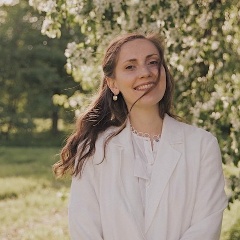Фрэнсис Бэкон в 1620 году разделил источники человеческих ошибок, стоящих на пути познания, на четыре группы, которые он назвал «призраками» или «идолами» (лат. idola).
«Призраки рода» проистекают из самой человеческой природы, они не зависят ни от культуры, ни от индивидуальности человека. «Ум человека уподобляется неровному зеркалу, которое, примешивая к природе вещей свою природу, отражает вещи в искривлённом и обезображенном виде».
«Призраки пещеры» — это индивидуальные ошибки восприятия, как врождённые, так и приобретённые. «Ведь у каждого, помимо ошибок, свойственных роду человеческому, есть своя особая пещера, которая ослабляет и искажает свет природы».
«Призраки площади (рынка)» — следствие общественной природы человека, — общения и использования в общении языка. «Люди объединяются речью. Слова же устанавливаются сообразно разумению толпы. Поэтому плохое и нелепое установление слов удивительным образом осаждает разум».
«Призраки театра» — это усваиваемые человеком от других людей ложные представления об устройстве действительности. «При этом мы разумеем здесь не только общие философские учения, но и многочисленные начала и аксиомы наук, которые получили силу вследствие предания, веры и беззаботности».
«Призраки рода» проистекают из самой человеческой природы, они не зависят ни от культуры, ни от индивидуальности человека. «Ум человека уподобляется неровному зеркалу, которое, примешивая к природе вещей свою природу, отражает вещи в искривлённом и обезображенном виде».
«Призраки пещеры» — это индивидуальные ошибки восприятия, как врождённые, так и приобретённые. «Ведь у каждого, помимо ошибок, свойственных роду человеческому, есть своя особая пещера, которая ослабляет и искажает свет природы».
«Призраки площади (рынка)» — следствие общественной природы человека, — общения и использования в общении языка. «Люди объединяются речью. Слова же устанавливаются сообразно разумению толпы. Поэтому плохое и нелепое установление слов удивительным образом осаждает разум».
«Призраки театра» — это усваиваемые человеком от других людей ложные представления об устройстве действительности. «При этом мы разумеем здесь не только общие философские учения, но и многочисленные начала и аксиомы наук, которые получили силу вследствие предания, веры и беззаботности».
In 1620, Francis Bacon divided the sources of human errors that stand in the way of knowledge into four groups, which he called "ghosts" or "idols" (lat. Idola).
The "ghosts of the race" stem from human nature itself, they do not depend on culture or on the individuality of man. “The human mind is likened to an uneven mirror, which, mixing its nature with the nature of things, reflects things in a curved and disfigured form.”
“Ghosts of a cave” are individual perception errors, both inborn and acquired. “After all, in addition to the mistakes inherent in the human race, everyone has his own special cave, which weakens and distorts the light of nature.”
"Ghosts of the square (market)" - a consequence of the social nature of man - communication and use of language in communication. “People are united by speech. Words are set according to the understanding of the crowd. Therefore, a poor and absurd statement of words miraculously besieges the mind. ”
"Ghosts of the theater" - this is a false idea about the structure of reality, assimilated by a person from other people. "At the same time, we mean here not only general philosophical teachings, but also the numerous principles and axioms of sciences that gained strength as a result of tradition, faith and carelessness."
The "ghosts of the race" stem from human nature itself, they do not depend on culture or on the individuality of man. “The human mind is likened to an uneven mirror, which, mixing its nature with the nature of things, reflects things in a curved and disfigured form.”
“Ghosts of a cave” are individual perception errors, both inborn and acquired. “After all, in addition to the mistakes inherent in the human race, everyone has his own special cave, which weakens and distorts the light of nature.”
"Ghosts of the square (market)" - a consequence of the social nature of man - communication and use of language in communication. “People are united by speech. Words are set according to the understanding of the crowd. Therefore, a poor and absurd statement of words miraculously besieges the mind. ”
"Ghosts of the theater" - this is a false idea about the structure of reality, assimilated by a person from other people. "At the same time, we mean here not only general philosophical teachings, but also the numerous principles and axioms of sciences that gained strength as a result of tradition, faith and carelessness."
У записи 1 лайков,
0 репостов,
121 просмотров.
0 репостов,
121 просмотров.
Эту запись оставил(а) на своей стене Сергей Андреев






















